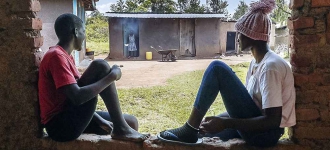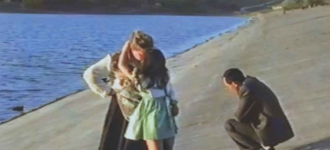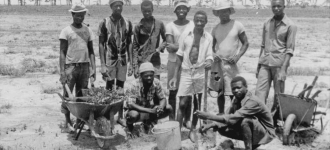The films in this selection present a variety of personal stories related to the world of work, with people and communities from around the world at the center – from mothers working abroad, to an African agricultural cooperative, to Croatian trade unionists.
In Love is Not an Orange, Moldovan mothers working in Italy have a unique, creative way of staying in touch with their families; their shared sense of absence and caring is expressed through messages recorded on video cassettes that are regularly exchanged between family members, and which hold the family together for many years like a loose thread. At the same time, the daily lives of the migrant mothers are conveyed in objects and flavors unknown at home – food, sweets, and gifts sent from the West. What’s to Be Done? from Croatia, chronicles a decade in the lives of workers and trade unionists at the Gredelj Rolling Stock Factory. Transporting us further in time and space, Xaraasi Xanne (Crossing Voices) follows the winding journey of generations of African workers moving between West Africa and France. At the same time, via extraordinary archival footage and photographs, the film tells the hopeful stories of a group of activists attempting to regain control of their land. The documentary is a close collaboration between Malian filmmaker Bouba Touré and French filmmaker Raphaël Grisey. Chinese documentary master Wang Bing has been capturing the lives of ordinary people in a changing Chinese society for two decades. His monumental Youth (Spring), the first piece in a planned trilogy, tells the story of a lost generation. The young people in the film, working 12-hour shifts by noisy sewing machines, are part of a group of twenty-somethings who flock from rural areas to big cities, leaving home for almost the entire year in search of better opportunities, and trying to find their place in the microcosm of the garment workshops that operate according to their own set of rules. The Golden Thread leads us to jute factories in Kolkata. The film is a vivid portrayal of workers whose lives have been inextricably intertwined with the jute-making process for decades, and recounts how they experience, on their own skin, the inevitable changes that are radically transforming their world. Finally, Free Money, set largely in Kenya, asks provocative questions about the role of money in society, while highlighting the fault lines between two very distant places in the world.
Fanni Somlyai
Program curator






